Feeling overwhelmed, distracted, or stressed out? Whether you’re navigating high school or juggling adult responsibilities, your mind is constantly racing. Meditation can help—and no, you don’t have to be a monk in the mountains to do it. This beginner’s guide to meditation is designed to get you started, even if you’ve never tried it before.
By the end of this post, you’ll know:
- What meditation really is (no fluff)
- Its scientifically backed benefits
- Different types of meditation for beginners
- Step-by-step instructions to start meditating today
- Common mistakes and how to avoid them
- Recommended apps, videos, and next steps
🧠 What Is Meditation, Really?

At its core, meditation is the practice of training your mind—just like going to the gym for your brain. It involves focusing your attention and eliminating the stream of jumbled thoughts that may be crowding your mind.
It’s not about “emptying your mind” (that’s a common myth), but rather about learning to observe your thoughts without judgment.
✅ Why Meditation Works – Backed by Science

You don’t have to take our word for it. Here’s what scientific studies say meditation can do:
- Reduce stress and anxiety (Harvard studies back this up)
- Improve focus and concentration
- Enhance emotional well-being
- Promote better sleep
- Boost memory and cognitive function
- Improve self-awareness and mindfulness
And it doesn’t take hours. Even 5–10 minutes a day can bring noticeable results.
🧘♂️ Types of Meditation for Beginners
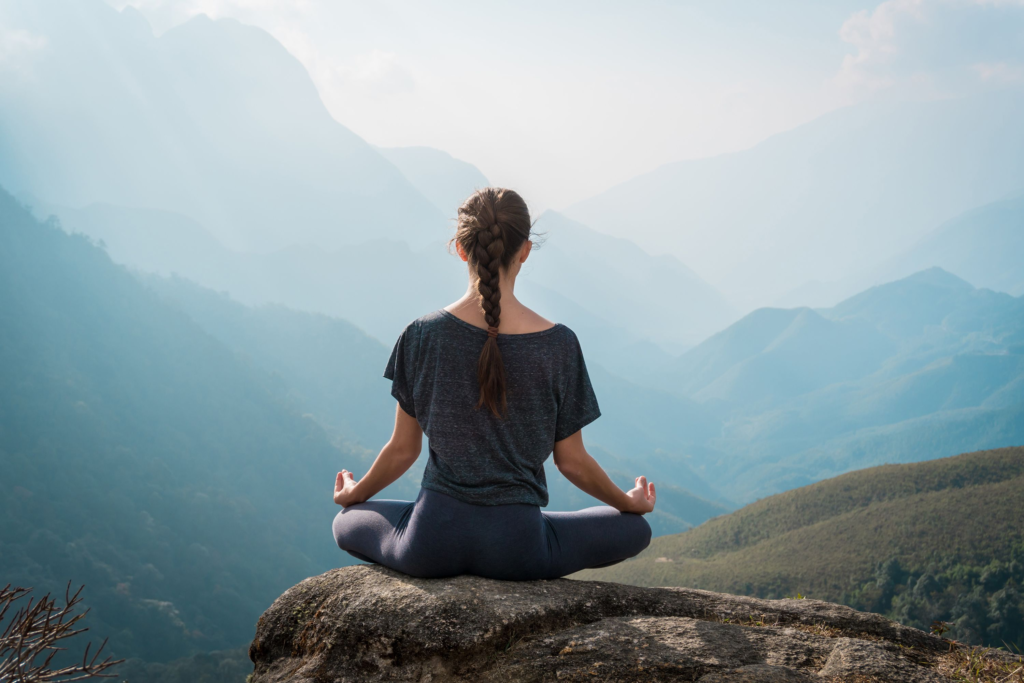
Not every style works for everyone, and that’s okay! Here are the most popular meditation techniques for beginners:
1. Mindfulness Meditation
Focuses on your breath, bodily sensations, and thoughts—acknowledging them without getting caught up.
2. Guided Meditation
An instructor or app leads you through a session. Great for those who don’t know where to start.
3. Body Scan Meditation
You mentally scan your body for areas of tension. Perfect for stress relief and sleep.
4. Mantra Meditation
You repeat a word or phrase (mantra) to anchor your focus.
5. Movement-Based Meditation
Yoga, tai chi, or even walking meditations help active people ease into the practice.
Pro Tip: Try a few styles to see what feels natural.
⏱️ How to Meditate: A Simple Step-by-Step Guide
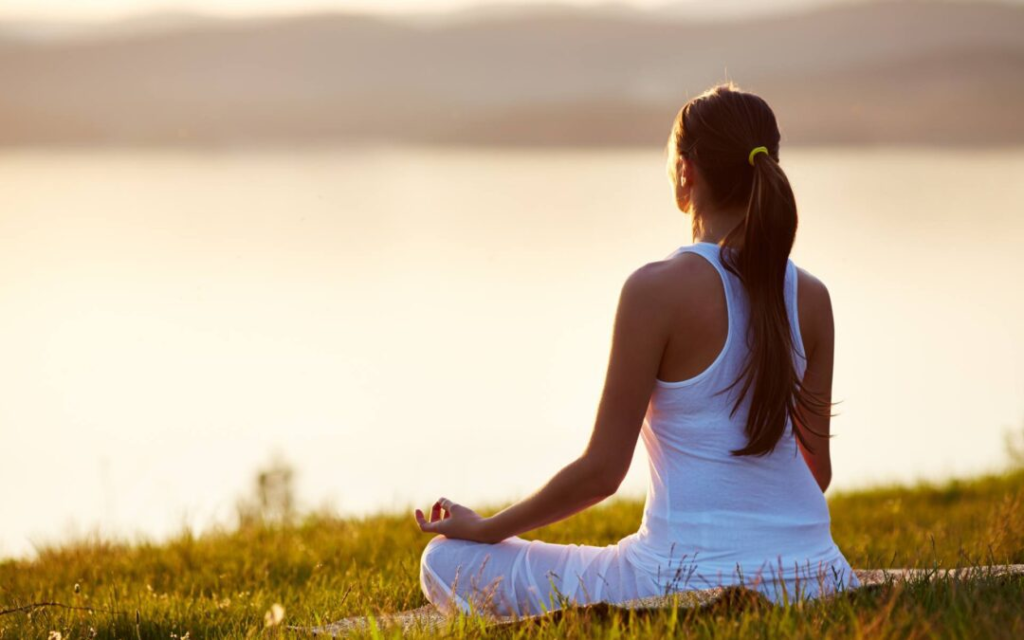
🪑 Step 1: Find a Quiet Spot
Sit or lie down somewhere comfortable. You don’t need a yoga mat—your couch or bed works fine.
🕯️ Step 2: Set a Timer
Start with 5–10 minutes. Use your phone’s timer or a meditation app.
🌬️ Step 3: Focus on Your Breath
Notice each inhale and exhale. Don’t control it—just observe it.
🧠 Step 4: Expect Distractions
Your mind will wander. That’s normal. Just gently bring your attention back to your breath.
📿 Step 5: Finish and Reflect
When the timer ends, take a moment to notice how you feel. Calm? Clear? Bored? All valid.
🧩 Common Beginner Mistakes (And How to Avoid Them)

🔸 Expecting instant peace: Meditation is a practice, not a quick fix.
🔸 Thinking you’re “bad” at it: Everyone gets distracted. It’s part of the process.
🔸 Waiting for the “perfect” time: You just need a few minutes. Start where you are.
🔸 Trying too hard to empty your mind: Meditation is about awareness, not control.
📱 Best Meditation Apps for Beginners

Here are free and beginner-friendly meditation apps to guide your journey:
- Insight Timer (tons of free guided meditations)
- Headspace (great for young adults, very beginner-friendly)
- Calm (soothing visuals and sleep meditations)
- Smiling Mind (science-based, especially good for students)
📺 Bonus: Best YouTube Channels for Meditation

Prefer video guidance? Try these:
- The Honest Guys – calming guided meditations
- Great Meditation – quick, no-frills sessions
- Yoga with Adriene – yoga + mindfulness
🗓️ Building a Meditation Habit That Sticks
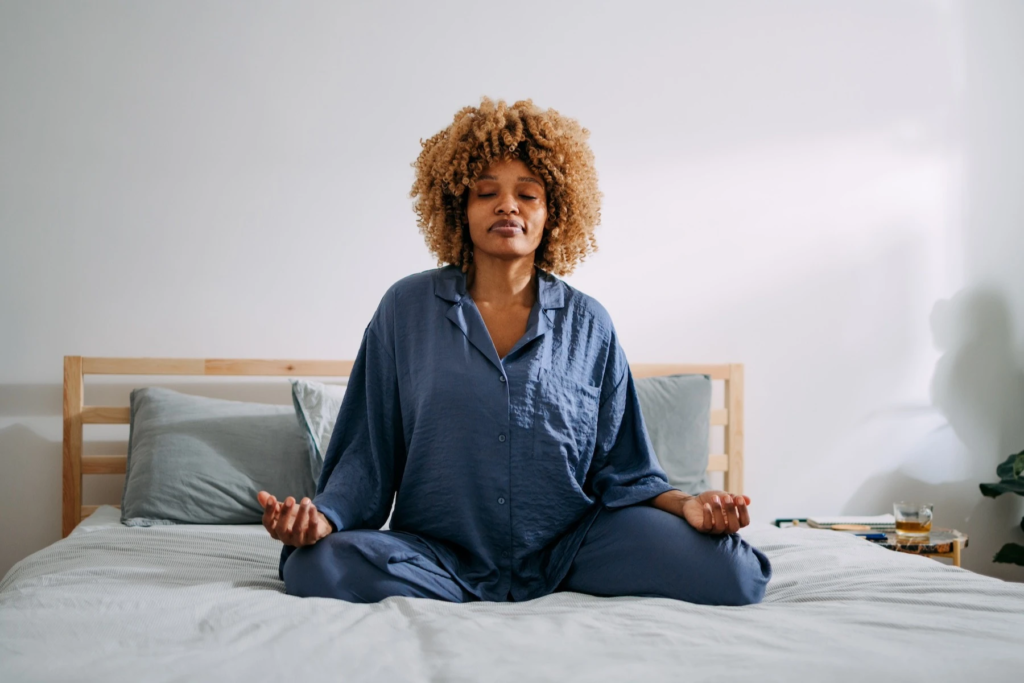
Meditation works best when it becomes part of your routine. Try this:
- Meditate right after you wake up or before bed
- Pair it with another habit (e.g., after brushing your teeth)
- Start with just 5 minutes and increase gradually
- Use a habit tracker or app reminders
🌟 Final Thoughts: Meditation is for Everyone
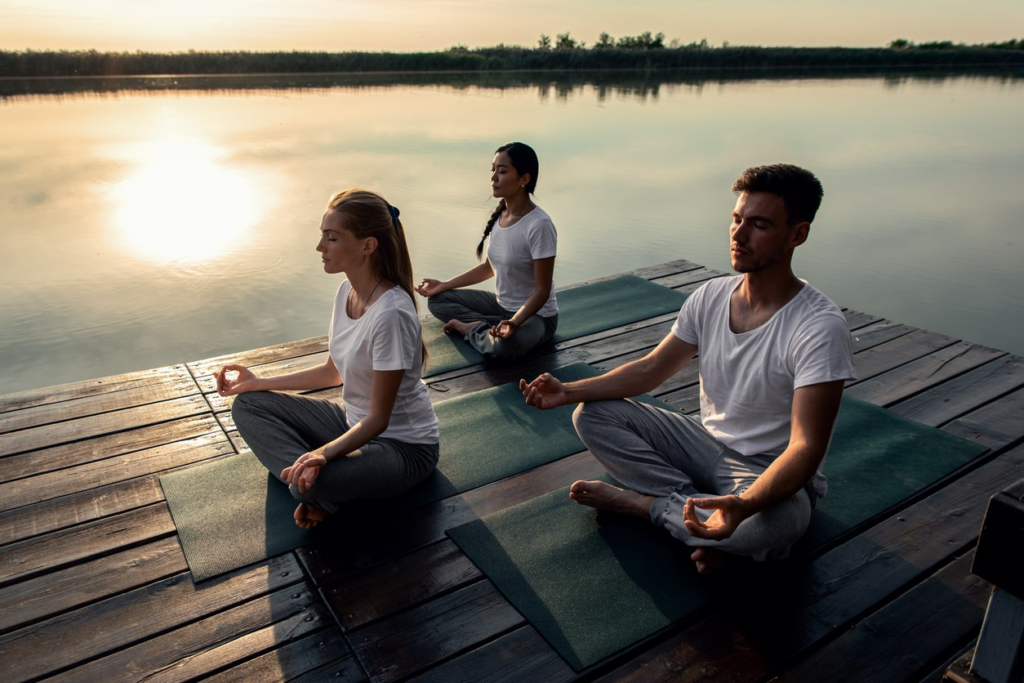
You don’t need to be spiritual, flexible, or calm to start meditating. You just need to start.
With a few minutes a day, meditation can:
- Help you stay grounded in stressful moments
- Sharpen your focus for school or work
- Improve your emotional resilience
- Support your mental health long term
Ready to give your mind the care it deserves?
🙌 Start Your First Meditation Today!
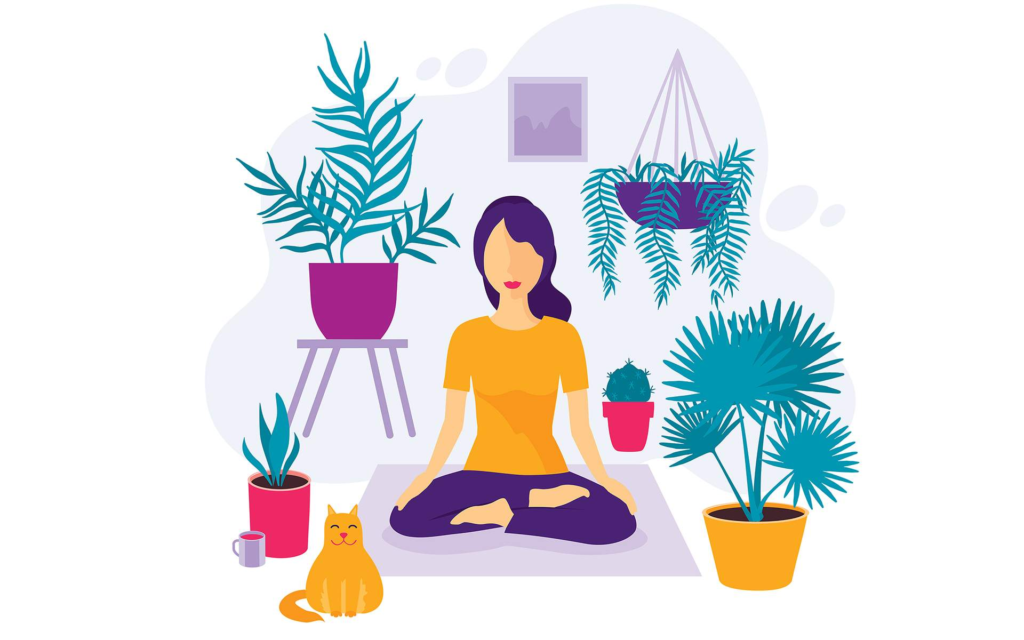
You’ve got the tools. Now it’s time to take action.
👇 Comment below: Have you ever tried meditation? What’s holding you back?
And if you found this guide helpful, don’t forget to share it with a friend who could use some calm in their life.
Read this Next:
1 Better Economy: The Power of Financial Education at Any Age
2 Best Free Mobile Games that are Addictive in 2025
3 The Best Films and Series That Mix Romance and Fantasy
4 The Ultimate Guide to Quality Sleep that Will Make Your Life Better
5 Easy Extra Income Options That Need Minimal Investment

© YourCoinBlox. Not to be reproduced without perm

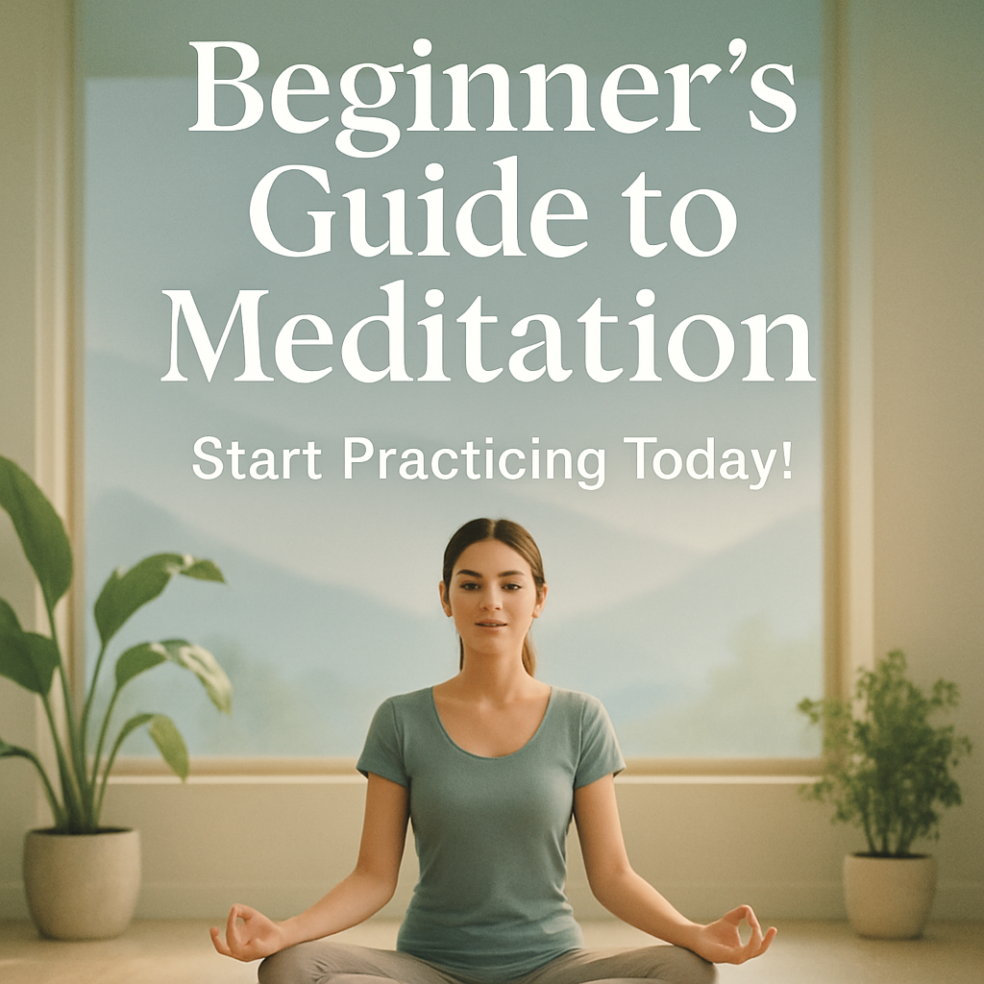
7 thoughts on “The Best Beginner’s Guide to Meditation – Start Practicing Today!”
Eh, ok93…It’s alright, I guess. Nothing really stood out, but also nothing particularly *bad*. Perfectly average, you know? If you’re bored, give ok93 a try, maybe you’ll have better luck than me.
Alright, so I hooked up my bet168wallet, and the transactions were smooth. Super easy topping up and withdrawing. Give it a spin if you’re keen: bet168wallet
Az888bet1, eh? The name sounds promising. Anyone had any luck on here? I’m thinking of giving it a try and seeing if I can win big! Join me? az888bet1
Slot tại 188v com có giao diện responsive – co giãn đẹp mắt trên mọi kích thước màn hình. TONY02-11O
Alright, friends! Just tried my luck at kjcrr88 and gotta say, not bad! The site’s pretty smooth and the games selection keeps things interesting. Definitely worth checking out for a bit of fun. Go have a look kjcrr88!
Hey! Giving l666bet a shot today. I’m liking the vibe so far, the platform is user-friendly and easy to get around. Worth a go if you’re looking for some online action. Find fun stuff right here l666bet!
Yo! Just jumped over to mbet1. Quick registration process and decent odds. I’ve seen worse. Give it a try, you might just end up winning! Check it out yourself mbet1!